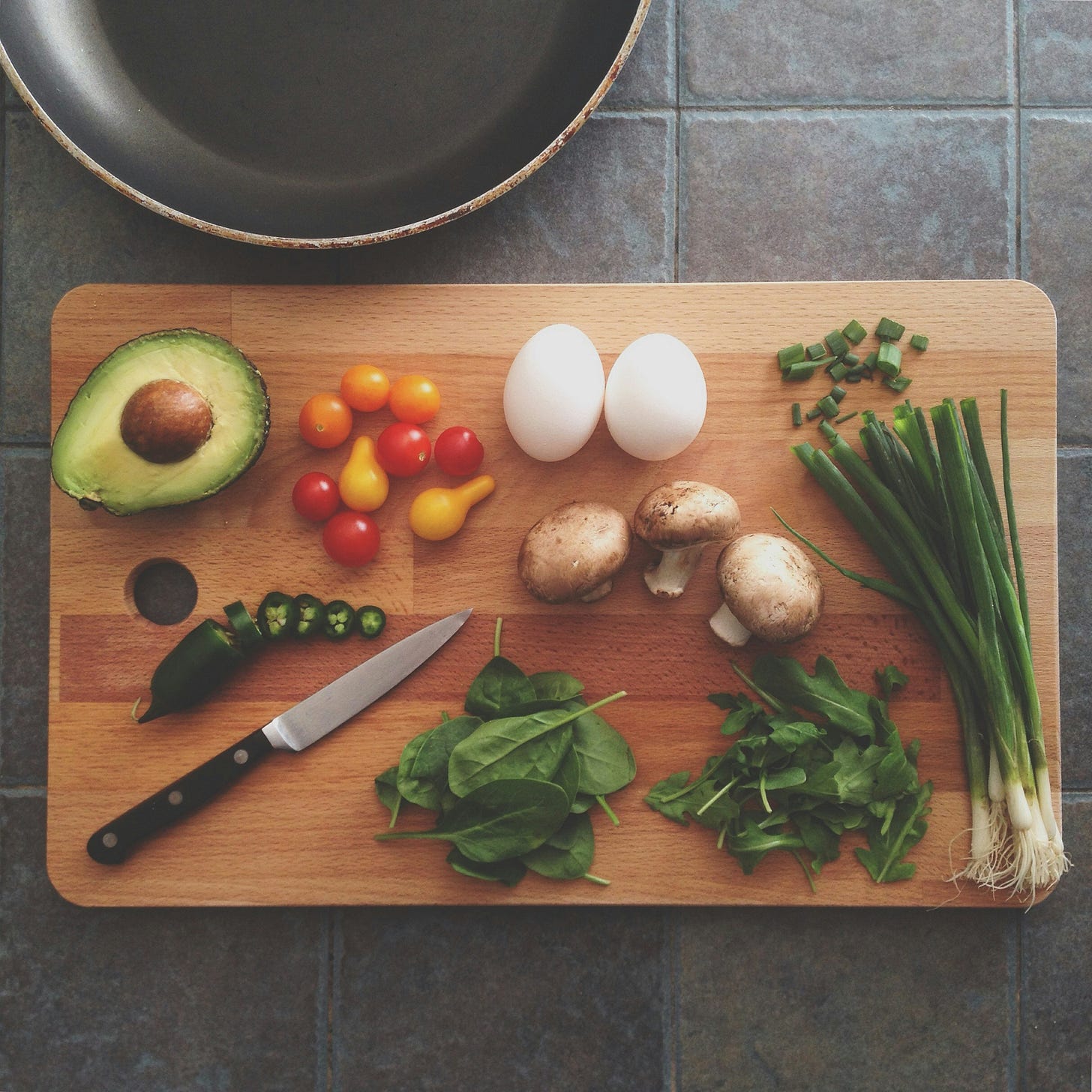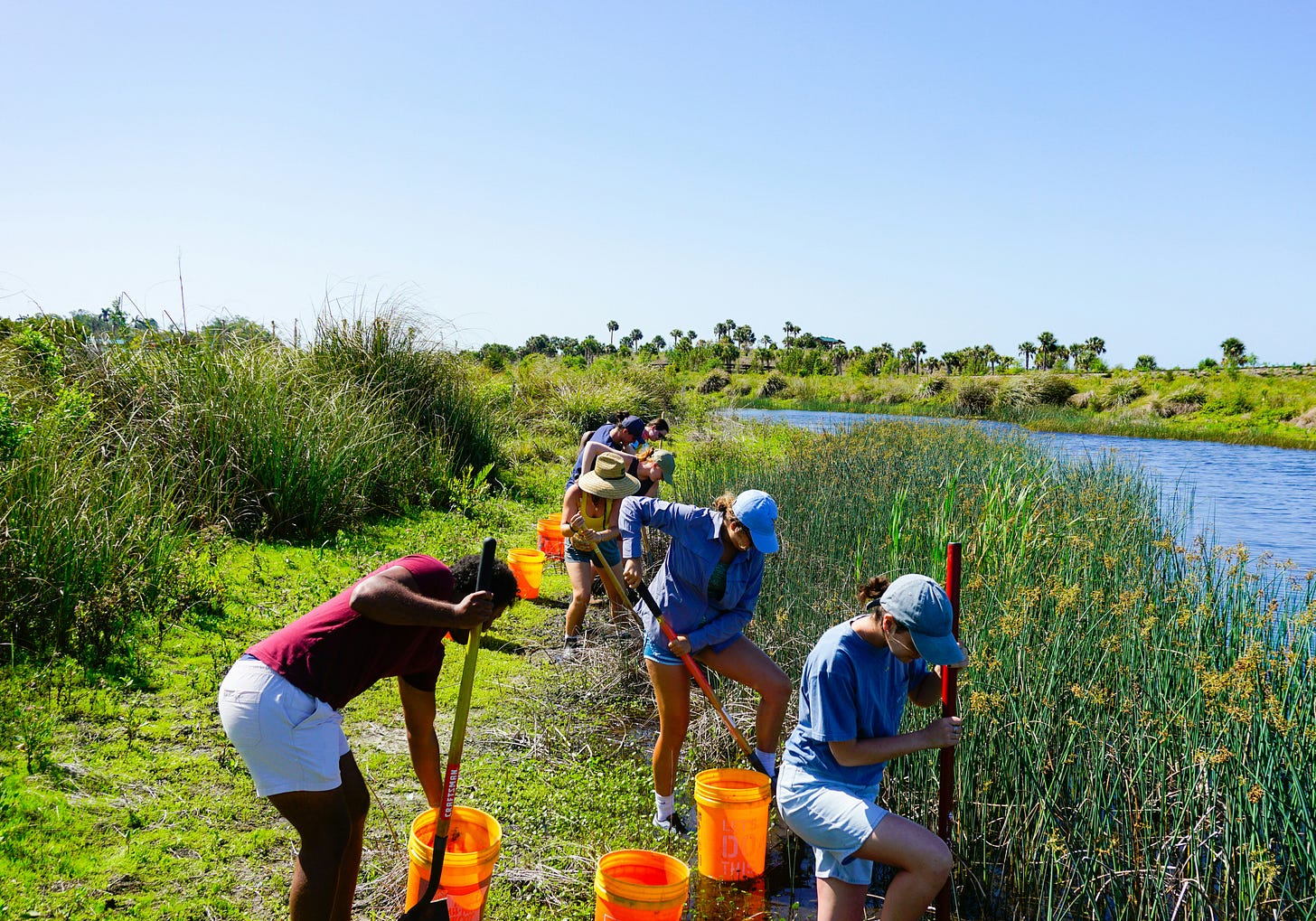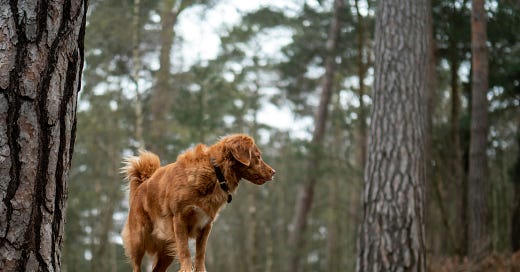46 Free Things You Can Do To Be More Prepared
Stay busy. Improve your situation. No money required.
Feeling anxious? Want to be productive and improve your situation, but unsure what to work on? Here are 46 free things you can do to help yourself and get ahead. Be productive and stay occupied so you don’t have to worry.
Physical and Mental Health

Get Some Exercise. Any type is good. Go for a walk or a roll. Do some stretches. Lift heavy things. Remember to learn and practice proper form so you’re moving properly and avoiding injury. Getting your heart rate up several times per week is healthy and will help you live longer and function better. Being in good shape means you can do more and better take care of yourself and others no matter what happens.
Meditate. Training our brains to focus on the present moment helps to strengthen them. It’s an antidote to constantly scrolling on The Feed of doom and gloom. It helps us to be calmer and relax. It can also help to build gratitude by contemplating the good things that we have. Regular meditation is healthy.
There are many good ways to meditate. If you prefer something audible for guidance - here is one great “View From Above” meditation, contemplating our place in the universe (10 minutes, from 5:16 to 14:30). There is also a 20 minute version on soundcloud (text).
Healthy Environment

Clean and organize. Can you do some laundry? Wash dishes? Guess what – both of those count as ‘prepping’! Cleaning up and reducing clutter will help you to feel more relaxed and positive, and makes your world a nicer space. Getting rid of items you don’t need and donating them can help out someone else in need, and reduces the number of things you need to maintain or keep track of. Be ruthless; don’t let your things own you (disclaimer: I am terrible at clutter myself, and need to work to be more organized. On the flip side, doing dishes and laundry regularly is one of my superpowers. It’s easy and fun)
Sharpen your kitchen knives. If you have a knife sharpener, are you using it regularly? I like to do this at least once per year, but check on your supplies.
Do some maintenance. Do you have a car, lawn mower, house, or machine that needs work to keep it running smoothly? Can you do a task from that? Change your furnace filter; check your car oil; top up windshield washer fluid; charge some AA batteries; vacuum under your fridge coils. Ideally – make a checklist for spring and fall so you can work through it twice each year. But doing an item now may help.
Check your Smoke Detectors. And carbon monoxide detectors. Do they work? Do they need new batteries? This may be one of the highest priorities for safety. It’s fast. We are supposed to do this each month.
Check your First Aid kit. Do you know where it is? Do you know how to use the items inside? Does anything need replacing?
Review your First Aid training. Do you have a first aid manual? What would you do in the event of a cut, an accident, choking, or someone being sick? Does your family know the procedure and how to call for help?
Check your Go Bag. If you had to leave your home in a hurry would you be able to quickly bring all of your important documents, some clothes, and other supplies you might need? Some experts call this a “Go Bag” – a bag that contains everything you would need to get by for three days on your own. Rather than being a crazy fringe idea, having your things organized helps you to make sure you have everything, and think about what you would want. Do you need a cable or battery to charge your phone? Do you know which important documents you need? Do you have copies of them? Going through the process can help a lot. Check your bag every few months by dumping it all out and reviewing items as you re-pack.
Take inventory. Do you know what food is in your freezer? How about your pantry? Look through your items and see what you have. Is anything about to expire? Can you make a meal with it? What will you need to stock up on during the next grocery run? Can you set up a process to use and rotate your foods? Knowing what you have in stock – especially if you can keep lists on paper or a whiteboard – may help.
Skills

Practice cooking / make some food. How are your cooking skills? Can this be an opportunity to improve them? Find a cook book you enjoy. I like “Good and Cheap” (free pdf!) and “Dinner - The Playbook” is great for beginning. Creating some meals in advance is always a good gift for your future self.
Practice situational awareness. When you go out in public – try to remain aware of your surroundings, see what people are doing, and where the exits are. Think about how you would react if a fight broke out, if someone began acting threateningly, etc. Give your trip some thought if you plan to join a large crowd.
Consider cutting down or replacing a habit. Do you have a dependence on caffeine, nicotine, alcohol, cannabis, or some other substance? Could you reduce your usage or replace it with something healthier? This might save you some money too (full disclosure: I drink way too much coffee)
Practice a family fire drill. This is useful to do once or twice per year, especially if you have kids. Calmly walk through your home and discuss each room or area – how would you get out if you needed to? Can you find an exit or two exits from each place? Where is your meet-up spot? Does everyone know how to get there? I like to have one meet-up location right close by, and another a short distance away (the nearest friendly neighbour)
Learn a new skill. Are there any food-helping, resilience, or income-generating skills you could start learning? Something that would enable you to meet or help other good people in your community? Making contacts and building community goodwill can be a worthwhile investment. e.g. clubs for gardening, sewing, writing, reading, hiking, geocaching, dog walking, jogging, firearm practice, bird spotting, plant and herb gathering, tree planting.
Some interesting skills include tying useful knots, learning sign language, learning morse code.
Mental health

Read a book. Expanding your mind and escaping for a moment are both healthy. Is there a new skill or topic you want to learn about? Perhaps you prefer fiction and a break from your present life. Reading is great for your brain and your health.
Unplug. Practice taking a break from the internet and your phone. What do you enjoy doing most with downtime? Could you create a routine to unplug and avoid electronics once per week?
Review your entertainment. Do you have any books, board games, crosswords, activities to do in the event of a power outage? Something to keep everyone occupied and having fun? Even having some paper, pens, pencils, and coloring supplies can be useful. What do you like to do?
Do a craft or hobby. It is okay to relax. Taking a break is helpful. Do you love knitting? Carving? Drawing? Coloring? There are plenty of adult coloring books with beautiful art, or even things like Coloring Tarot Deck if that’s your thing.
Backups and Budgets

Back up your data. Do you have an automated way to back up photos and important documents? Could you create one? Do you have a way to store backups locally on a separate device? How about online or at an alternate location? Could you and a friend or family member both offer to store a backup drive for the other person, to help you both out?
Calmly review your bills and budget. Have you learned how to budget? If not – now is a great time to start. Have you kept up with budgeting lately?
Compare utility rates. Could you reduce your bill slightly by calling a phone or utility company, shopping around, and comparing rates? e.g. do you have any variable-rate bills or utilities you’d like to change to fixed? Sometimes companies will lower your bill simply for the asking. Other times the best way to lower your bill is to get a quote from a competitor and then call your current company and let them know. It may not always work, but sometimes it helps. I like to do this once each year, right before our annual renewal.
Review your insurance coverage. Do you have home insurance, car insurance, or disability or life insurance? If not, do you need some? If yes – do you have the right amounts, protecting the right things? It can be useful to review this each year. Has your situation changed? Some companies will be happy to walk through this and review with you if you call.
Handling Emergencies Well

Write down a list of radio stations. If there was a fire, storm, tornado, or other event in your area, do you know how to find out or where to get updates? Write down a list of useful radio stations, and/or get the websites and phone apps you need to stay informed. Ensure you know which station(s) to tune in to for warning alerts.
Create a preparedness plan or binder. If something happens what will you do? Consider writing out a checklist and set of steps. I like the division into three types of plans – “get home”, “stay at home”, or “leave” - and organizing plans, actions, and supplies around that. For each event, consider - What steps would you take, and what items would you need?
Review the natural disaster history for your area. What things happen near you? Are there events you should expect, but haven’t prepared for? Do you live near a railway, power plant, or other structure? What can you add to your plan or binder to help and get more ready?
Discuss plans with your partner or family. If you have a partner, spouse, or family – are they on board with handling emergencies and planning for it? This is an important base. Does your family know what to do, or why? Having a calm discussion beforehand is much better than yelling or fighting under stress.
Make a destination ally. If you need to leave, where will you go? A hotel? A friend’s place? Family member? Consider working to set up several safe places you could go, at different distances – 20 minutes away; an hour away; one day away. Contact them ahead of time and discuss it. If they agree to be your emergency destination, agree to be theirs too. This is much better to discuss in advance than under stress.
Review your evacuation routes. Do you know at least two ways of getting out if you needed to? How will you get there?
Check your maps. Do you own a physical map that shows your routes? Have you practiced reading it or marked it? Local travel offices or your Motor Association may even give away maps for free!
Check in with your destination. If you haven’t talked in a while - how are they doing? Consider giving them a call or catching up. Maybe they’ll be glad to hear from you. You may be able to use a recent natural disaster or event to start a discussion. “I was just reading the news… how are you doing for an event like that?”
Learn from old wisdom. Do you have any neighbours who have been through natural disasters or events before? What do they do to prepare? What would they do next time? Can you ask them? Learning from others who have been there can be very useful. Perhaps starting this conversation is a good way to make an ally.
Practice going without. To practice skills and see how you would react in that situation. Try having a meal with no power - practice using your candles, lanterns, LEDs, or other sources of heat and light to eat a meal. You can make it a fun family event to eat by candle (LED) light. If you have a tent – try camping outside in nature, a local park, or in your back yard. Treat it like an adventure. Or plan an actual camping trip. Perhaps you could turn this into a fun monthly routine.
Local Activities

Volunteer. Gifting your time, skill, and energy is one of the most generous things you can do. Find a charity or organization that you agree with and ask them where they need help. There are always great places that need more volunteers. While you are at it – check if your employer does any charitable donation matching. Some companies even let you spend some hours or a day of work time doing volunteer work.
Cut down your driving. Could you get food or run an errand without a car? Could you group multiple errands together to make one trip? What about carpooling with a neighbour, or picking up groceries for them while you also do yours? Perhaps you can swap next time. Public transportation routes? Riding a bike? It may be useful (and good exercise) to practice getting around and accomplishing tasks without using fossil fuels, both for now and in case you ever needed to.
Explore your area. Do you know how to get around? In the country – do you know the terrain? In the city – do you know your neighbourhood? Getting to know your surroundings can be fun and may be useful.
Learn about local useful plants. You need to be careful here and not rush off eating anything that you find. But check some gardening, herb, and plant books or ask foraging experts in your area. Are there plants that can be used as food, medicine, or something else? Something beneficial you could plant in your garden? Around your yard to build more habitat? Or even just something that looks nice and is easy to recognize the next time you are out walking. e.g. yarrow is fairly common, and looks distinct (and you can even brew tea or beer with it)
Meet your neighbours. Having a friendly ally or team may be one of the best preparations. Do you know each of your neighbours? Could you start building a relationship? I find holidays are useful to make introductions – e.g. you can bake cookies or other food and stop by to introduce yourself.
Visit your local library. Libraries can have all kinds of useful information and entertainment options besides ‘just’ books. Check if they host events such as talks, presentations, craft nights, repair workshops, or other things you may be interested in.
More Mental and Physical Health

Write a Thank You letter. Think about someone who created something you enjoy, or something you are grateful for. Maybe they made some music or art. Maybe they wrote one of your favourite books. Did you have any teachers or former coworkers who mentored you, taught you, or had a big impact on your life? Write them a note telling them thanks, and mention what it meant to you. This is a great thing to do.
Practice gratitude. Even if you don’t write a letter or send anything to anyone, you can still practice gratitude all by yourself. Think of something you are grateful for, and focus on it for a moment. Practicing gratitude helps to train our brains to recognize the positive, and recognize progress. What is one thing you’re grateful for this week?
Take a deep breath. It’s going to be okay. You can do this.
Connect with someone. Reach out to those you care about - friends, family, or neighbours. How are they doing? Do they need any help? Is there someone in your community or family you would enjoy catching up with? Building and strengthening our social connections is a healthy activity. Often just connecting and talking helps to lift spirits.
Celebrate small wins. Did you accomplish something this week? Great work. Maybe it was something small. You brushed your teeth with the opposite hand. You took out the trash. You got out of bed. Good work; you’ve got this.
Shower, bathe, or get clean. This can keep you healthy and feeling refreshed.
Have a nap. Taking care of yourself is important, and also a radical act. Getting enough sleep not only helps brain happiness, it also makes you better able to tackle challenges. Even a short 20 minute nap can help you to recover and feel refreshed. (you may not want to nap right before bedtime. Or maybe you just want to go to bed early)
Good luck!
Further Resources
Exercise - Getting Started
Couch To 5k (C25k) running program. An exercise program to get you started and up off the couch
Objects you can use as freeweights - free things you may have lying around. Canned food, books, water containers, etc.
Stability + Flexibility
Bob and Brad - physiotherapy (the two most famous physiotherapists on the internet)
Yoga With Adriene. Many different yoga workouts of routines for different amounts of time
Strength



